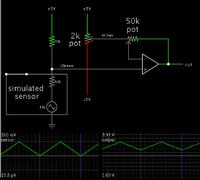4tuty
Member level 3

- Joined
- Mar 27, 2012
- Messages
- 59
- Helped
- 0
- Reputation
- 0
- Reaction score
- 0
- Trophy points
- 1,286
- Activity points
- 1,735
I need a program to convert photodetector output (voltage) to brix value
View attachment op560a.pdf
i have attached the data sheet of the PD and IR LED.
View attachment IRL 81A, Lead (Pb) Free Product - RoHS Compliant.pdf
View attachment op560a.pdf
i have attached the data sheet of the PD and IR LED.
View attachment IRL 81A, Lead (Pb) Free Product - RoHS Compliant.pdf

